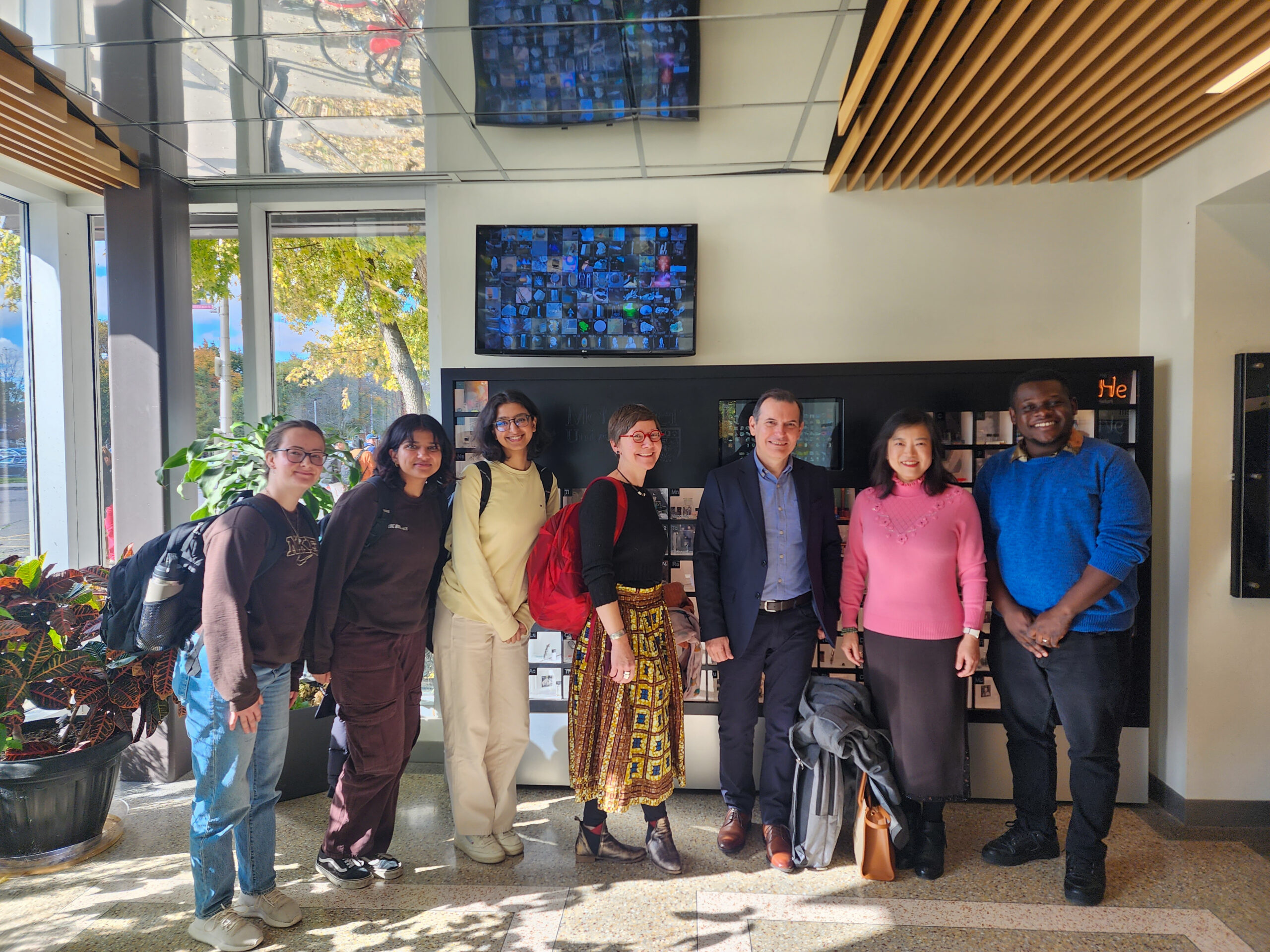Perspectives from a new Global Health student and Humanitarian Health Care Ethics Research Group Trainee

From Montreal…
In September 2014, at the peak of the Ebola outbreak that inundated the minds of media and global citizens alike, I found myself in an unlikely situation. I, as a third year Microbiology & Immunology student at McGill University, was working as part of a global coalition of health professionals to research, compile and brand training protocols for the International Medical Corps (IMC). Here, I was able to see the laboratory techniques and virology concepts I was learning in the classroom be applied in real time by the IMC’s Multi-Agency Training Collaboration (MATCO) to support the Ebola response in West Africa. As an aspiring Humanitarian Health Care Professional, it was an exciting first exposure to this fast paced, international, and interdisciplinary sector.
…to Hamilton,
Two years later, I find myself in Hamilton Ontario, in a ‘classroom’ that seems to defy all classical connotations of the word. The program, McMaster University’s 12 month Masters of Science (MSc) in Global Health, is a wildly successful (2015 CBIE Program of Excellence) experiment in international collaborative education. This morning’s lecture is a prime example of why; it’s happening 6,000 kilometres away at the University of Maastricht – and next week, students from the Netherlands will tune into our classroom here in Hamilton. Each lecture is followed by a chance to virtually connect with our global groups to work on assigned policies with real-world relevance and impact.
…and beyond.
While my journey through this program has only just begun, the pace of learning is breakneck. Lectures and group projects weave through developing critical soft skills and hard analytical competencies, flawlessly incorporating tangible and intangible learning. Our global groups serve as microcosms of global health teams, allowing us to hone the skills that are as vital to completing a graded assignment as they are to grant proposals and field deployments. Working through time zones, language barriers, and diverse motivations, we face real challenges and prepare for the rigours of pursing a profession in this sector. One of the first ethical challenges we must consider is the language of correspondence itself; how are we (native english speaking Canadian students) placed in a position of power within our global teams? How does this influence the sharing of ideas and accessibility of information, and how can we work with our peers to dismantle these structures and enable full participation? Furthermore, how do language and regionality impact where, how and to whom humanitarian aid is delivered? With our expert mentors and a plethora of toolkits at our disposal, we will work together to tackle these challenges in pursuit of a greater understanding of this diverse sector.
One thing is for certain, this will be no normal classroom.
Read the original version of this post at https://humanitarianhealthethics.net/category/commentaries/
Gautham Krishnaraj
Student BlogRelated News
News Listing

November 12, 2024

November 5, 2024

Pollution, Power, and Protest: Unpacking Environmental Racism from Africville to Wet’suwet’en
Student Blog
October 10, 2024
